When the International Olympic Committee announced that only rights-holding broadcasters can share “sound or moving images” from the games – meaning that anyone else could be liable for copyright infringement – the decision didn't go down well.
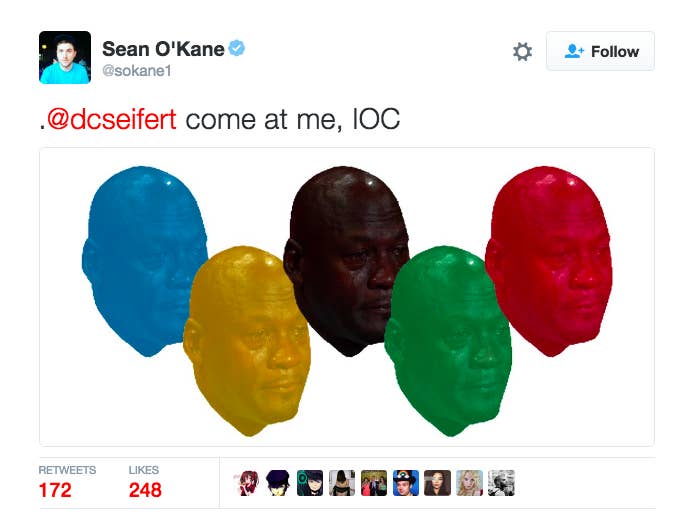
It especially hit a nerve with Twitter users, who asked how the platform — where abuse and hate speech is commonplace — was able to take down Olympic GIFs in mere minutes but do so little to tackle harassment.
NBC: remove all tweets with our olympics footage Twitter: of course Girl: a guy is harassing me Twitter: we don't have the tools for that
Last week BuzzFeed News reported on Twitter's years-long failures to address protecting users from harassment.
Twitter responded: "We feel there are inaccuracies in the details and unfair portrayals but rather than go back and forth with BuzzFeed, we are going to continue our work on making Twitter a safer place. There is a lot of work to do but please know we are committed, focused, and will have updates to share soon."
Many questioned why Twitter seemed to be reacting much faster to possible copyright infringement than it does to the abusive messages so many users experience on a daily basis – or why the company doesn't consider some abusive material worthy of taking down at all.
Twitter is deleting users posting Olympic clips within minutes. They have tools to deal with harassment, but they'll only protect brands.
For example, some wondered how was it that when a Twitter user said he would rape a lesbian to "turn them straight", the company apparently deemed it wasn't a violation of its rules and let it stay on the site.
Twitter says this tweet doesn't violate their rules. Free speech gone too far considering plight of lesbians in RSA
Or how when this woman received a rape threat, Twitter didn’t remove the tweet or ban the user. Instead, the platform said that although reading the tweet could be “frustrating”, it was an attempt by a harasser to “connect” with people around the world.
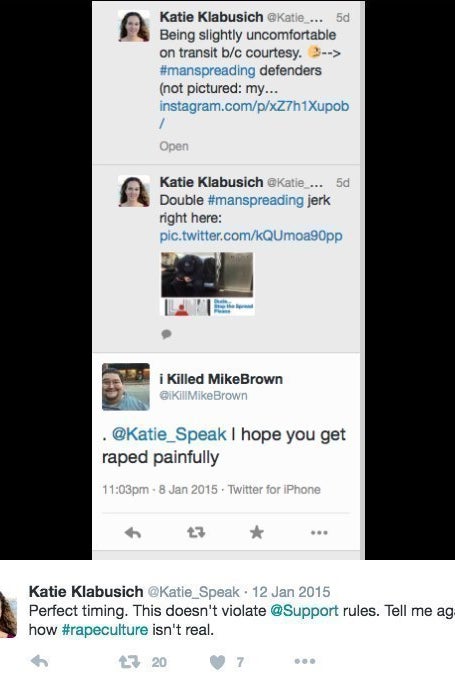

Or how when this rape threat was sent to several feminists on Twitter, the company said it didn’t qualify as abusive material.
Twitter just let me know that this doesn't violate their rules or qualify as abusive behavior. Lighten up, ladies!
Or how when Mariam Veiszadeh, a Muslim lawyer, was inundated with racist abuse on Twitter last year, the company didn't remove the offensive tweets at the same speed as it does clips from the Olympics.
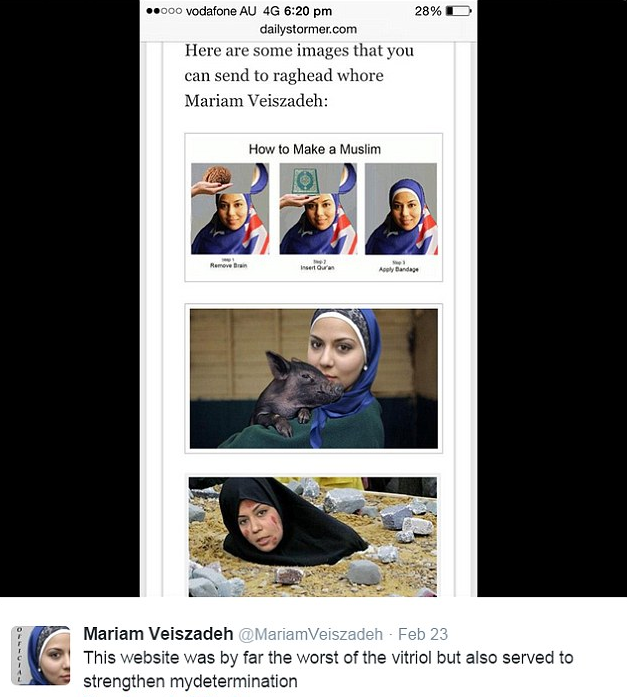
Or how when this couple were told it was tragic they weren’t shot during the Orlando attack, users reported the tweet but nothing happened and the person who sent the abusive message continues to tweet today.
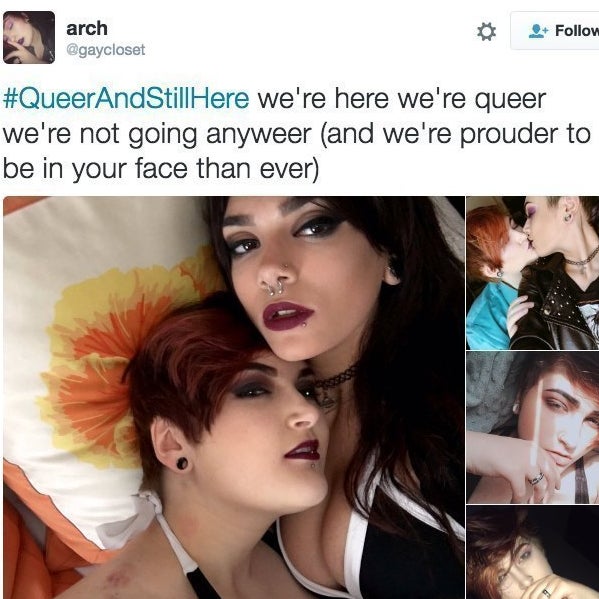
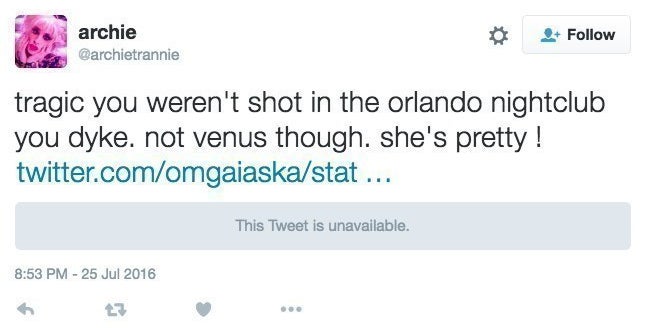
Or how when a user was sent this anti-Semitic tweet, the company could not "determine a clear violation" of its rules.
According to @twitter this antisemitic tweet doesn't violate their rules.
Or that Normani Kordei, a member of the group Fifth Harmony, was forced to leave Twitter after being subjected to racist abuse.
another black female celebrity driven off @twitter because the platform won't address harassment https://t.co/MY5EclLfB2
Or that Ghostbusters star Leslie Jones was driven off Twitter last month after being subjected to a tirade of racist abuse.
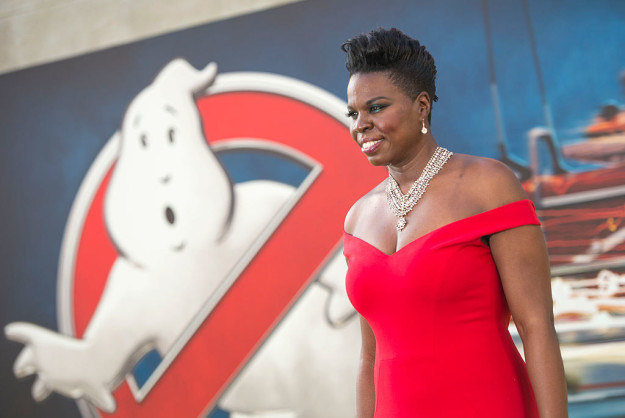
A Twitter spokesperson told BuzzFeed News: “This type of abusive behavior is not permitted on Twitter, and we’ve taken action on many of the accounts reported to us by both Leslie and others. We rely on people to report this type of behavior to us but we are continuing to invest heavily in improving our tools and enforcement systems to prevent this kind of abuse. We realize we still have a lot of work in front of us before Twitter is where it should be on how we handle these issues.”
Twitter later did take action by later permanently suspending the account of Milo Yiannopoulos, an conservative commentator who led the attack against Jones.
Or how when a user was told to "kill yourself, slut", the company didn't determine it as harassment.
Hey, @Support, glad to know that telling people to kill themselves doesn’t break the rules.
Or how this tweet wasn't considered harassment that needed monitoring or removal.
@twitter Can't believe you replied to me saying this tweet doesn't break any of your rules
Or how this tweet mocking domestic violence wasn't, either.
So Twitter doesn't think that someone tweeting this to me is in violation of their rules. Okay. Lol.
Or how when a woman was sent abusive messages about her husband and daughter, Twitter told her it doesn't break the rules.
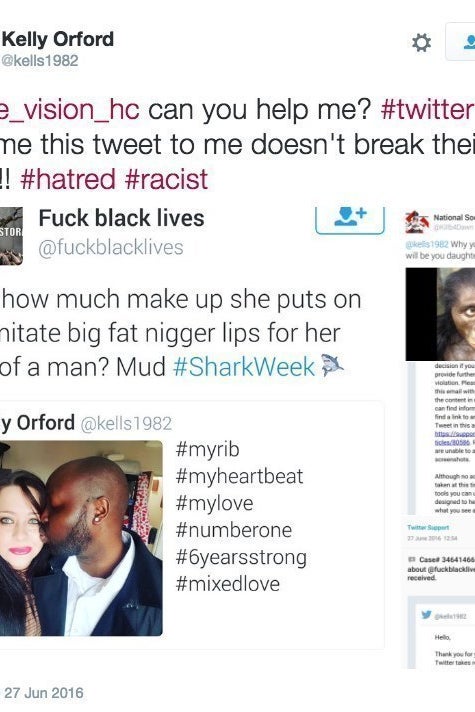
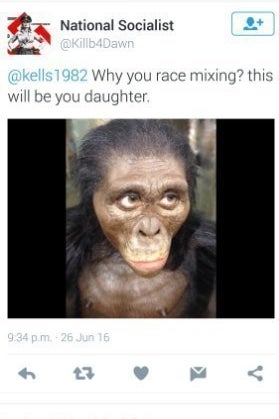
Or how when this tweet, reported by users, wrongly identified the Dallas police shooting suspect, it was left in place to rack up to 50,000 retweets. The man targeted received thousands of death threats.
PLEASE RT!! This tweet by @DallasPD is now targeted harassment of this man, PLEASE REPORT TO @SUPPORT
Yet if a user tweets a video of the Olympics, Twitter has acted quickly and, in some cases, deleted the account.
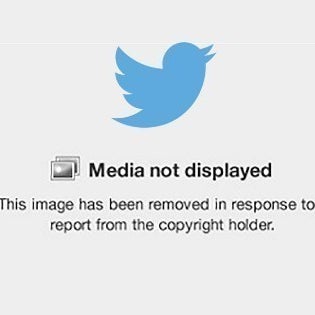
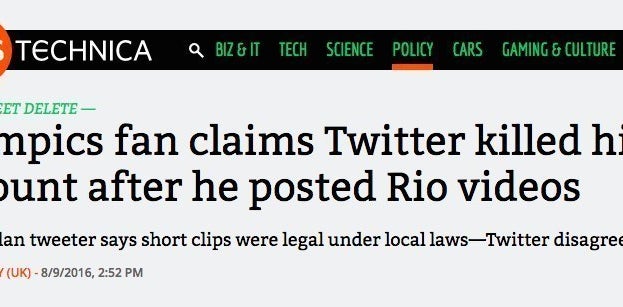
And if a Twitter user makes an account mocking Twitter's response to harassment on its platform, that too has been taken down.
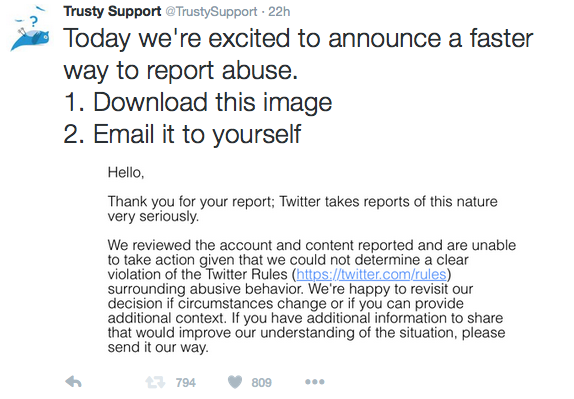
Twitter also deleted a tweet illustrating the time difference between champion swimmer Katie Ledecky’s first-place finish and the second-place finisher with the intro to Carlos Santana’s “Smooth”.
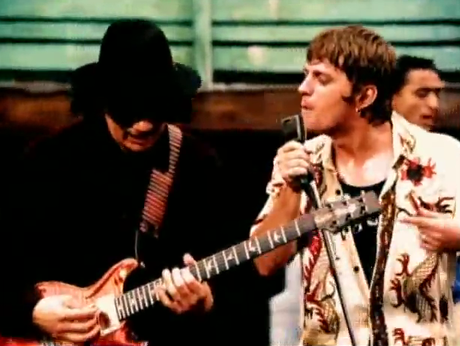
Twitter has removed tweets containing Olympics footage under the Digital Millennium Copyright Act (DMCA), a 1998 law meant to limit the spread of piracy on the internet, as reported by BuzzFeed earlier this year:
"Under the DMCA, rights holders can file takedown notices to service providers when they believe their users are distributing copyrighted material without permission. Once a 'service provider,' such as Twitter, receives a DMCA notice for takedown, they can choose to remove the allegedly violating material and be exempt from related legal action from the company filing the notice. If they refuse to remove the material, then they can be sued for hosting it."
UPDATE
In response to the criticism of its takedown policy, a Twitter spokesperson told BuzzFeed News:
“Twitter responds to copyright notifications submitted under the Digital Millennium Copyright Act ('DMCA'). Section 512 of the DMCA outlines the statutory requirements necessary for formally reporting copyright infringement, as well as providing instructions on how an affected party can appeal a removal by submitting a compliant counter-notice.”
None
